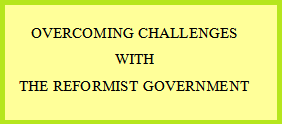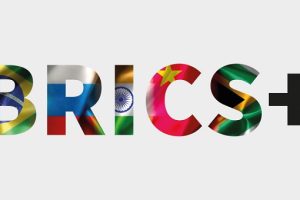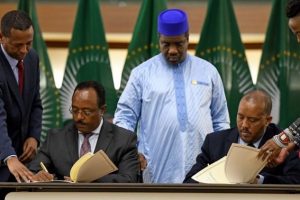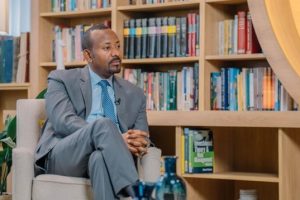
From Wall Street to Hong Kong, finance runs the world and is the nucleus of might. And, as they might makes right. In an increasingly competitive world, maximizing power will put you on a glide path toward success. Especially, economic and financial power is the key to steering the world in any direction. Finance is in this regard considered to be the blood vessel of nations to assert their hegemony. Surely, power without financial might is unthinkable and superpowers and blocs around the globe have built their power with their financial backings.
Generating alternative sources of finance and expanding revenues have been priorities of international, continental, and regional blocs to realize their ambitious aspirations. For many, financial independence will make organizations robust and active in their quest to meet their interests.
Equally true, financially unstable and weak entities as witnessed in many instances fall prey to their financiers and the ownership status will be put in jeopardy.
Politically speaking, finance has it all in terms of influencing the decision-making abilities of political alliances or blocs. In this regard, being a resource-rich continent, Africa is still under the shackles of financial dependence sticking itself with external donors. At the heart of such problems is the continental bloc African Union. Although being one of the oldest originations, the bloc of 55 member states, the African Union has been struggling to emancipate itself from financial dependency.
Recent figures reveal that around 15 members out of the 55 states have been living up to the pledges. And, many float the idea that financial constraint makes the Union to be a rubber stamp institution, succumbing to the interests of donors.
The bloc relies heavily on partners to fund its activities, with two-thirds of its 2023 budget drawn from external sources, a report by the Institute for Security Studies indicated.
Over the last few years, different factors have hampered member countries’ abilities to finance the union.
African nations have dealt with a number of global challenges including the Covid-19 pandemic and the recent wars between Russia and Ukraine and Palestine and Israel. To this end, the countries were unable to commit themselves to the Union. Yet, member states will remain committed to their obligations to the AU, said Angolan Ambassador Jorge Catarino Cardoso, Director of the Africa, Middle East and Regional Organizations Directorate of the Ministry of Foreign Affairs told to The Ethiopian Herald.
The ambassador said, “We are facing very challenging times. We just came from the Covid-19 pandemic which made things very difficult for member states. A lot of effort and resources were put into fighting the pandemic. That was a priority of saving lives.”
The current report, which has been presented at this year’s AU Summit, has a positive picture in terms of the contribution of member states for the 2023 financial year, said the Ambassador.
In the Kigali Decision in 2016, African Union member states pledged to finance the Union by contributing 0.2 percent of their levy would be transferred to the AU to pay for its operational, program, and peace support operations.
Back in 2017, Paul Kagame spoke at a Consultative Meeting on African Union Reforms in Kigali, saying “The decisive factor here was changing our mindset from dependence to ownership, and from “we can’t” to “we can”. That is an asset that cannot be imported. The levy is the formula we came up with to assure our independence as Africans. This is first and foremost a choice to no longer be dependent on outsiders. It’s really about the value we attach to being effective and self-reliant as an organization and as a continent.”
The Ethiopian Herald held an exclusive interview with Dawit Mezgebe Tsegaye, a lecturer at Dila University and PhD candidate of African and Asian studies at Addis Ababa University. He said, “Since its establishment in 1963, the African Union is still unable to be financially independent due to multiple factors. The colonial legacy and Africa’s domestic political instability are some of the major factors.”
“Being financially dependent on external donors made Africans to be self-abnegation that they are bending for the interest of those donor countries,” Dawit stated.
Regarding political meddling in the internal affairs of African nations, according to the scholar, Africans have been under the colonial legacy since the colonial period; even some West African states are still dependent on their colonial masters. Yet, there is an external interference in Africa’s internal politics. This interference has also an impact on Africa’s domestic economy.
Dawit mentioned that Kigali’s Decision to contribute 0.2 percent of the nation’s import income is based on the amount of goods and items imported from the outside world. The relation between the African nations and the global economic powers determines the quantity.
Failing to meet the financial commitment of the member states, Dawit added, the problem is an intercontinental issue. After independence, most African states were not stable politically and economically. Between the 1960s and 1970s, there was significant growth in the African economy due to a higher exporting rate. However, recurrent coups and instability caused Africa to fail to meet the commitment to contribute to the Union.
Further, Dawit noted that though Africa and other nations have established the Non-aligned Movement, Africans cannot escape the domination of its financers. Such domination is structural and it negatively affects the economics of the latter, adding “Africa is a resource-rich continent, but it is politically and economically mismanaged, and it is directly and indirectly affected by external factors.”
The 0.2 percent contribution is for the Union and for Peace fund. Africans are not contributing so we are under the mercy of donors and blocs supporting us. “Africa is comprised of 55 independent states. After the Kigali decision of contributing 0.2 percent of the income, very few states are contributing,” the scholar discussed.
“African Union is a toothless lion. The leaders are having summits in a specific time frame, and they are more dependent on the UN, UNSC, and the EU. We need to work on increasing the nations’ commitment and mechanisms to impose strong commitment.”
In relation to generating its own income, according to the scholar, “Multinational companies like banks are investing in Africa; Airlines are passing through the continent. Accordingly, the African Union must create a sort of mechanism for generating its own income from the above-mentioned opportunities.”
“African states and leaders should have full commitment to come closer and work. They need to understand the importance of financing the Union. We need to have very strict rules and regulations on financing the Union with transparency and accountability. We, Africans, must be unified to have a strong Union.”
The scholar elucidated that the European Union, for example, is intelligently collecting its budget support from member states, and such action is a luxury for African countries. The African Union should draw a lesson from other blocs like the European Union (EU) on how to collect what is promised.
BY DANIEL ALEMAYEHU
THE ETHIOPIAN HERALD SUNDAY EDITION 18 FEBRUARY 2024




